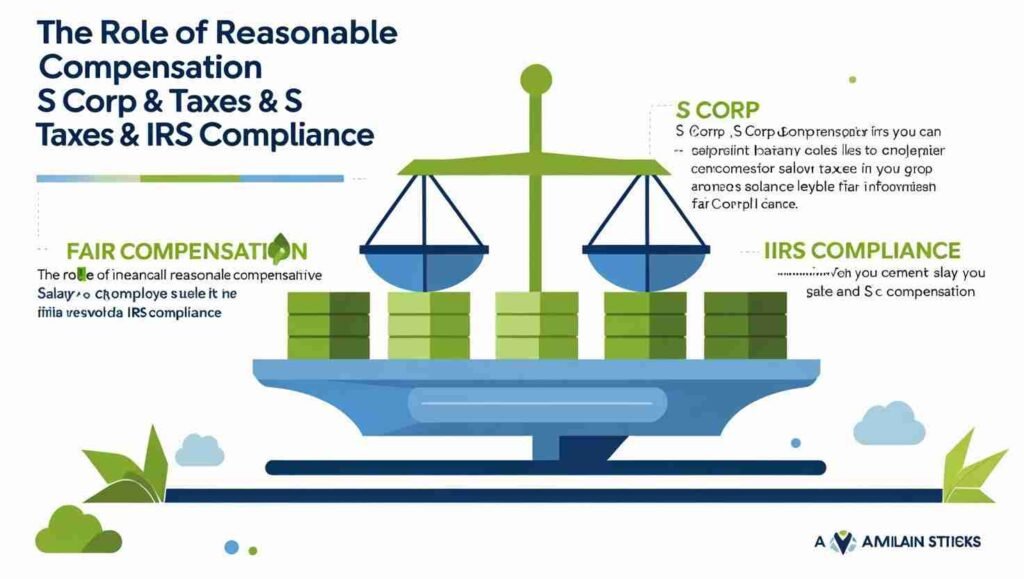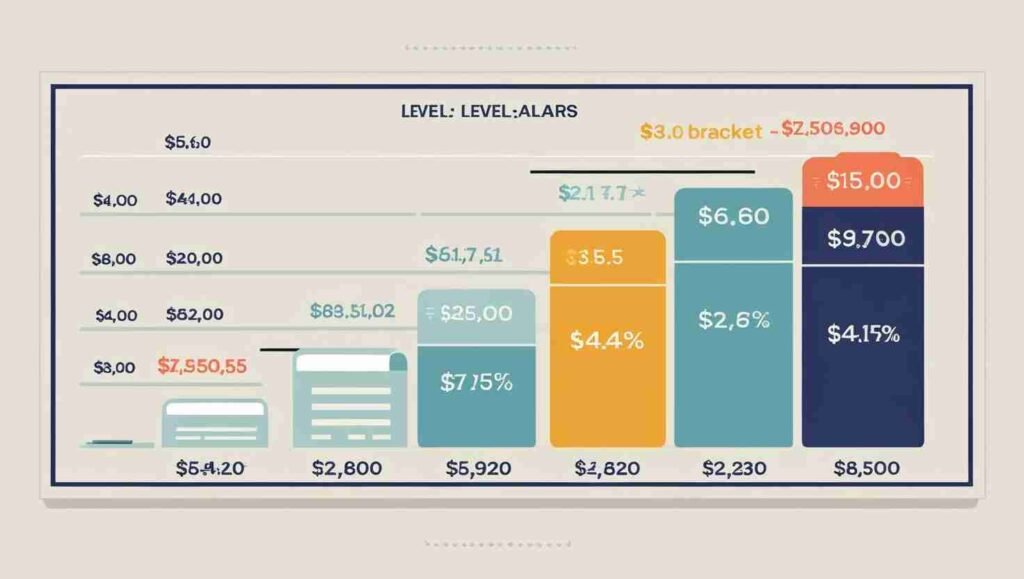Reasonable compensation is a cornerstone of tax planning for S-corporation owners, allowing you to minimize taxes while ensuring IRS compliance. By carefully balancing salary and distributions, you can reduce payroll tax liability and optimize your financial strategy. This article explores the tax implications of compensation, offers strategies for tax savings, and highlights the importance of compliance.
Understanding Reasonable Compensation
As covered in What is Reasonable Compensation for S-Corporation Owners?, reasonable compensation is the salary an S-corp owner pays themselves for services, comparable to market rates. This salary is subject to payroll taxes, while distributions are only taxed as income, making the balance critical for tax planning.

Salary vs. Distributions: Tax Implications

S-corp owners receive two types of payments:
- Salary: Subject to:
- Federal and state income taxes
- Social Security tax (12.4% total: 6.2% employee, 6.2% employer)
- Medicare tax (2.9% total: 1.45% employee, 1.45% employer)
- Distributions: Subject only to federal and state income taxes, not payroll taxes.
By setting a lower reasonable salary, you can take more as distributions, reducing payroll taxes. However, the salary must be reasonable to avoid IRS reclassification.
Tax Savings Strategies
To optimize taxes, aim to set your salary at the lowest reasonable amount. Here’s how:
- Calculate Reasonable Compensation: Use market data to find a fair salary range, as outlined in How to Calculate Reasonable Compensation: A Step-by-Step Guide.
- Assess Business Profits: Pay yourself a salary before taking distributions, ensuring it doesn’t exceed profits.
- Balance Tax Savings: Choose a salary within the reasonable range that minimizes payroll taxes. For example, if the reasonable range is $60,000–$80,000, setting $60,000 saves on payroll taxes compared to $80,000.
For instance, with $100,000 in profits, a $50,000 salary incurs $7,650 in payroll taxes (15.3%), while $50,000 in distributions is only subject to income tax, potentially saving $3,060 compared to a $70,000 salary.
Ensuring Compliance
Setting a salary too low risks IRS penalties, as discussed in Avoiding IRS Penalties: Ensuring Your Compensation is Reasonable. The IRS may reclassify distributions as wages, adding taxes, penalties (up to 10% for late deposits), and interest. Document your salary decision with market data and maintain consistent payroll to avoid scrutiny.
Example: Tax Planning in Action
An S-corp owner with a consulting business earns $150,000 in profits. Research shows consultants in their area earn $80,000–$100,000 (per BLS). They set a $80,000 salary, paying $12,240 in payroll taxes, and take $70,000 as distributions. This saves $3,060 in payroll taxes compared to a $100,000 salary, while remaining compliant.
Use Our Calculator for Optimal Planning
Our Reasonable Compensation Calculator helps you find the optimal salary by factoring in your role, industry, and profits. It estimates tax implications, ensuring you balance savings and compliance.
External Resources
Conclusion
Reasonable compensation is essential for effective tax planning in S-corps. By setting a fair salary, balancing it with distributions, and documenting your process, you can minimize taxes while staying compliant. Use our calculator to simplify your tax strategy and focus on growing your business.